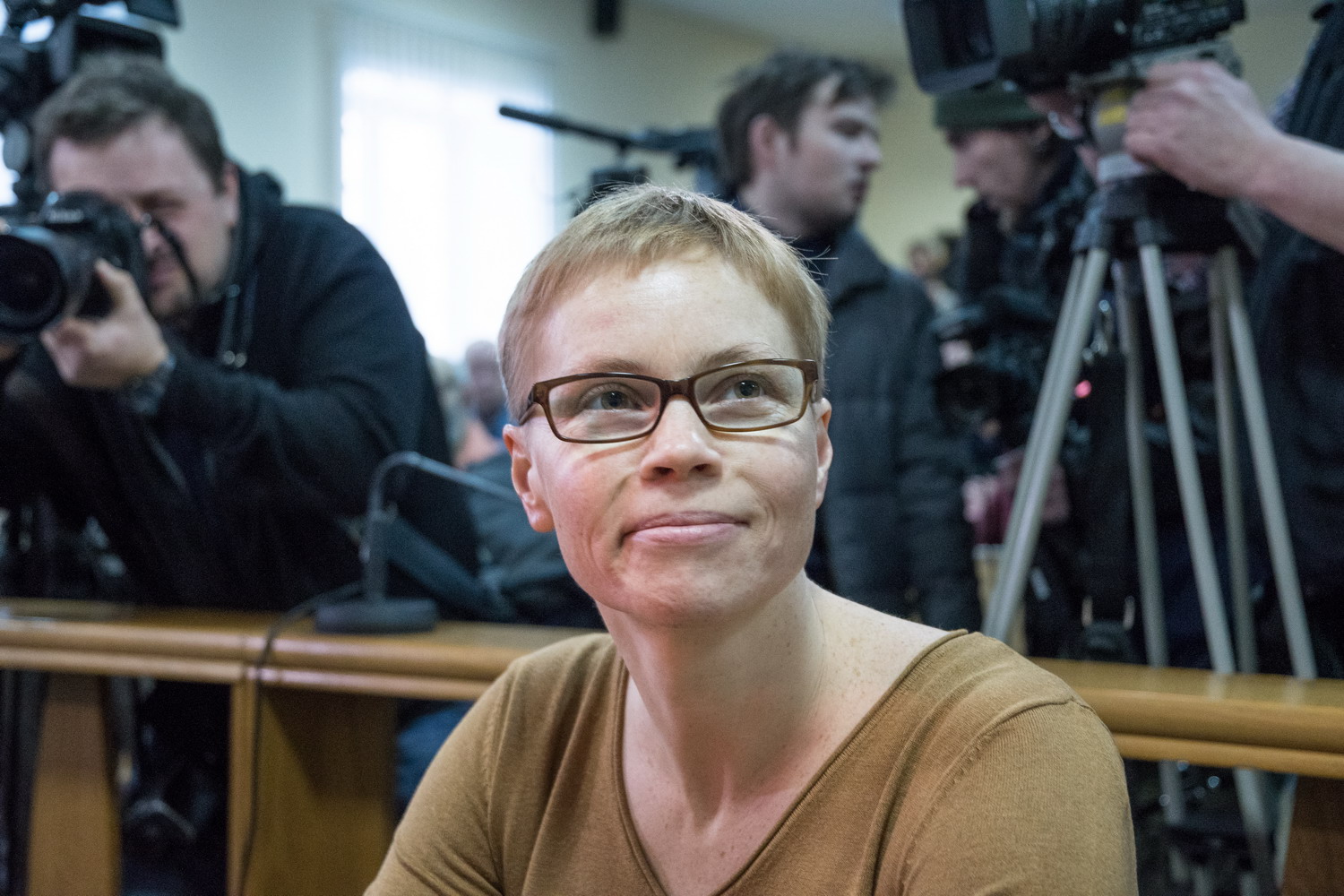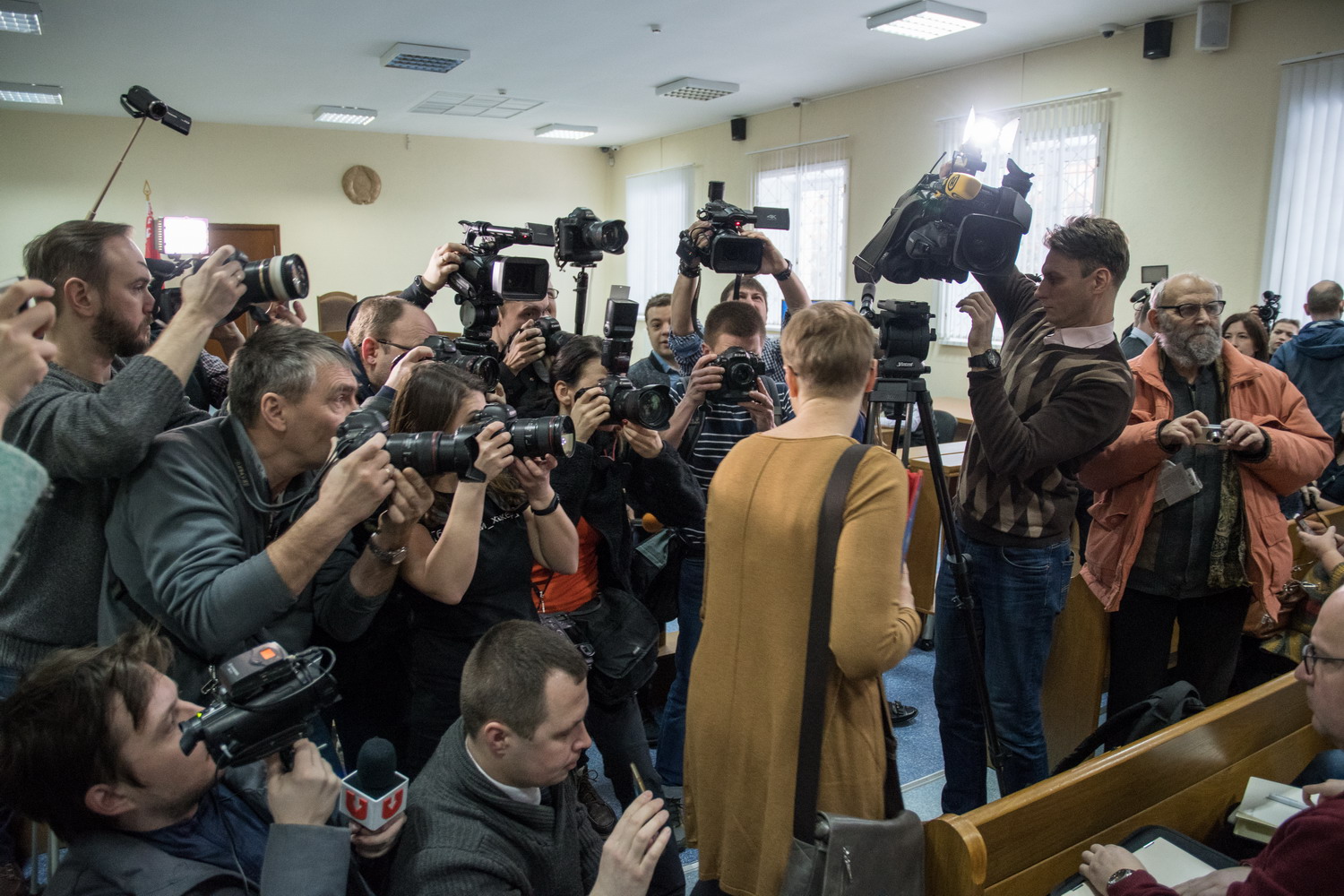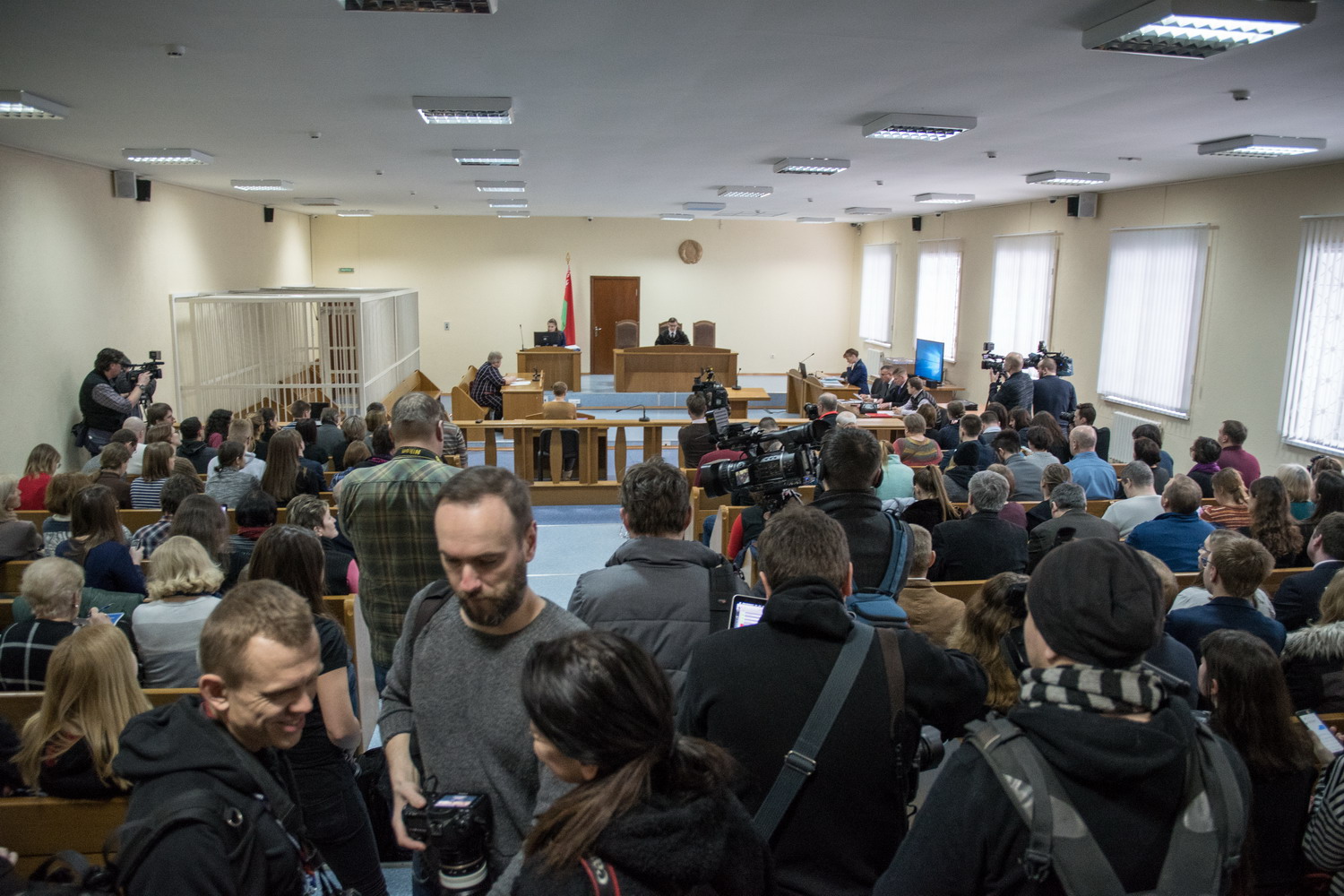What is 'BelTA case?' Explainer

Maryna Zolatava/Euroradio
The trial of Maryna Zolatava, editor-in-chief of Belarus’ leading online news portal TUT.BY began on 12 February at Minsk’s Maskouski District Court. Known as the ‘BelTA case,’ this is a second time in the history of modern Belarus when the editor-in-chief of a media organization is tried for professional work.
'BelTA case': Key Q&A
On 7 August 2018 at approximately 0920, the Investigative Committee of the Republic of Belarus announced that it had opened a criminal case under Article 349 (2) that deals with ‘unauthorized access to computer information, an act committed deliberately and leading to significant damages.’ As it became known later, under ‘unauthorized access’ investigators meant that the editors and journalists from several media outlets had read news from the paid subscription feed of state-run news agency BelTA, using other clients' logins and passwords.
Agents raided the flats of journalists and searched their newsrooms for several hours. The footage of raids in the apartments of Maryna Zolatava, editor-in-chief of TUT.BY, and Tatsiana Karavenkova, journalist with the private news agency BelaPAN, was broadcast in the news bulletins on state TV channels. Later, it became known that Zolatava, Karavenkova and four more TUT.BY editors had been in Investigative Committee’s custody.
On 8 August, more journalists and editors were detained. The flats of journalist and media analyst Pawluk Bykowski who works for German public broadcaster Deutsche Welle and Belarusy i Rynok newspaper editor Aliakasei Zhukau were searched. Realt.by portal’s editor-in-chief Uladzislau Kuletski and several journalists were taken to the Investigative Committee for interrogations. BelaPAN’s editor-in-chief Iryna Lewshyna was also detained following the search in her apartment. All in all, 15 people were detained and interrogated in the ‘BelTA case.’ All of them were released later but remained to be treated as suspects in the criminal case.
In the course of investigation, Zolatava became a suspect under one more article – Article 425 (2) in the Criminal Code that deals with ‘inaction by an official.’
"Nicked news"
Remarkably and at the same time sadly, the country’s main state-run newspaper SB. Belarus Segodnya (Belarus Today) on 7 August published the investigation materials from the ‘BelTA case.’ Among other things, the newspaper’s website published the audio record and the transcript of a phone conversation between TUT.BY editor-in-chief Maryna Zolatava and editor Hanna Kaltyhina. The newspaper had received the record from the law-enforcement bodies.
Transcript:
Zolatava: "We are ‘nicking’ BELTA [news from the paid feed], aren’t we? Basically, you are taking the news that can be accessed openly? Or are you taking the news from the subscription newsfeed not waiting for them to appear in the open domain?"
Kaltyhina: "Quite frankly, I am using the newsfeed and do not actually open BelTA’s website. Virtually never, because the subscription feed is always quicker. In principal, this is important at news conferences, etc. Therefore, in principal, yes, we are using it. We are ‘nicking’ it."
When this conversation was published, some people had doubts about the honesty of TUT.BY and other journalists involved in the case. However, one has to note here that the word ‘nicking’ both in the context of this conversation and in journalists’ professional slang does not actually mean ‘stealing.’ Rather, it has the meaning of ‘republishing other media outlet’s news with attribution.’
The record is evidence that the phones of TUT.BY workers had been tapped before the criminal case was opened.
A representative of the Investigative Committee said at the UN Human Rights Council that “the BelTA’s case is about nothing but trivial hacking.
A targeted attack on TUT.by editor-in-chief?
In early November, 14 suspects were charged under Article 249 (2). BelTA also filed administrative lawsuits against them. Every journalist was to pay an amount equal to the subscription fee for several months. On 22 November, criminal charges were dropped against Bykowski and Kuletski. They compensated the damages and paid a fine between BYN 3000 and BYN17000 ($1500-$8000).
On the same day, TUT.BY editor-in-chief was charged under Article 425 (2) – ‘inaction by an official.’ Zolatava was the only one not charged with unauthorized access to BelTA’s paid newsfeed. Under Article 425 (2), punishment ranges from a fine to up to five years in jail.
In late November, criminal charges against all other suspects but Maryna Zolatava were dropped. They had compensated the damages and paid fines. The Investigative Committee rejected Zolatava’s several appeals to stop criminal proceedings in the ‘BelTA case.
According to Valiantsin Stefanovich, a lawyer with the Viasna human rights center, the article applied in the prosecution of Zolatava is much more serious than the initial charges of unauthorized access to computer information.
“This article envisages up to five years in prison as a maximum punishment. There is no other option than a fine. If convicted, she will also be banned from taking certain managerial positions,” Stefanovich told Euroradio.
"Crackdown looked like a pre-planned campaign"
Human rights groups link the ‘BelTA case’ with general pressure on independent media in Belarus. The amended Law on Media, in the view of Stefanovich, affect the journalists from online news outlets in the first place.
“We treat the case in this context. As rights defenders, we say that the actions of the Investigative Committee looked like a pre-planned campaign,” Stefanovich noted.
The chairperson of Belarusian Association of Journalists Andrei Bastunets likens the Investigative Committee in the ‘BelTA case’ to a thug “who extorts money from the journalists for the damages they allegedly inflicted on BelTA.”
“The most surprising is that criminal charges have remained against Maryna Zolatava who was not initially accused of unauthorized access to information,” Bastunets said.
Before the trial, Zolatava shared her opinion why she ended up on trial in court. She said:
"I think there are other reasons than BelTA’s claim why all of this happened. One of the reasons is that the online media remain out of the state’s control. While TV and radio lost their independence long time ago, internet is not controlled yet. The government could have acted in some other way. I have things to regret. I have already talked about it and will say again during the trial."





















